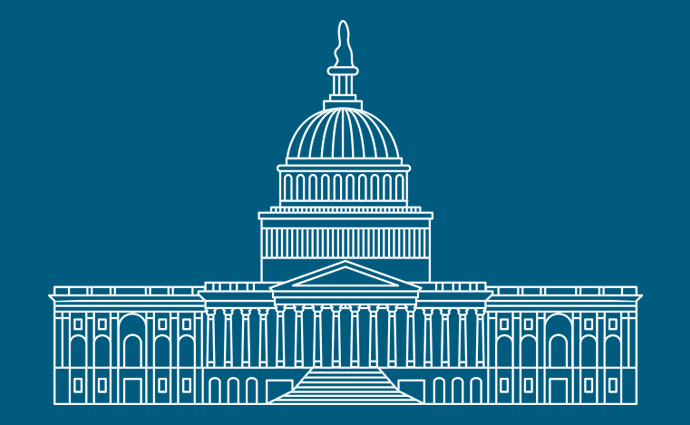HELP Plan to Cut Costs Tackles Surprise Medical Bills, Transparency
Ending surprise medical bills and boosting price transparency are top ways to lower healthcare costs, according to a draft bill from the Senate HELP committee.

Source: Thinkstock
- Leaders of the Senate Health, Education, Labor, and Pensions (HELP) committee recently unveiled their bipartisan plan to lower healthcare costs for patients by covering a wide range of healthcare reforms, including surprise medical bills and healthcare price transparency.
“These are common sense steps we can take, and every single one of them has the objective of reducing the healthcare costs that you pay for out of your own pocket,” Senate health committee Chairman Lamar Alexander (R-TN) said in a press release announcing the Lower Health Care Costs Act of 2019. “We hope to move it through the health committee in June, put it on the Senate floor in July and make it law.”
The 165-page draft legislation released on May 23 leads with solutions to stop surprise medical bills. The bill includes three strategies for preventing patients from receiving unexpected charges for care from out-of-network physicians.
The bill would establish a set provider reimbursement rate for out-of-network charges, which would be the median contracted rate for the same services provided in the geographic area. The bill would also allow insurers and providers to negotiate the rates for surprise medical bills over $750.
Senator Lamar and Ranking Member Patty Murray (D-WA) also included text that would require all providers in be “in-network” at a hospital, meaning providers can choose to join the insurance networks that cover the hospital, or they can send the bill through the hospital.
READ MORE: 1 in 7 In-Network Admissions End with Surprise Medical Bill
The third solution would prevent a common reason for surprise medical bills: a commercially insured patient goes to an in-network hospital but receives care from an out-of-network provider. Nearly one-half of individuals in the US are covered by an employer-sponsored plan.
Senators Lamar and Murray’s solutions for surprise medical bills are sure to face some backlash from critical healthcare stakeholders. Providers groups and insurers have been going head-to-head over standard reimbursement rates and arbitration.
The American Hospital Association (AHA) and other provider advocates argue that allowing the federal government to dictate rates for providers is a “dangerous precedent” and could disrupt incentives for health plans to establish comprehensive networks, while insurers and the White House have opposed arbitration because it could increase healthcare costs overall.
The AHA has already voiced their opposition to the Lower Health Care Costs Act of 2019’s solution to stop surprise medical bills through standard provider reimbursement rates. Tom Nickels, the association’s executive vice president, said he opposes “approaches that would impose arbitrary rates on providers, along with untested proposals such as bundling payments, which would be unworkable and would do nothing to solve the issue of surprise billing.”
Experts from the USC-Brookings Schaeffer Initiative for Health Policy, however, recently came out in support of the draft legislation’s third solution: the in-network guarantee. “[N]etwork matching would be an effective solution to the most common instances of surprise billing and compares favorably to many of the most commonly discussed alternative approaches,” they said.
READ MORE: Going Above and Beyond the CMS Hospital Price Transparency Rule
Stakeholders have opportunity to tell lawmakers how they feel about surprise medical bill solutions included in the draft legislation. The health committee is accepting comments on the discussion draft until June 5.
But the draft also covers other major healthcare issues that impact providers and hospitals, including healthcare price transparency. The bill would prohibit anti-competitive terms in provider-payer contracts, including gag clauses the ban either party from disclosing negotiated rates.
The draft legislation would also require healthcare facilities to provide a summary of services to discharged patients to make it easier to track bills, require hospitals to send bills within 30 business days, and require providers and insurers to give patients out-of-pocket cost estimates for scheduled care.
In the draft legislation, Senators Lamar and Murray also describe a new non-governmental, non-profit entity that would be charged with de-identifying patient healthcare data so stakeholders can access and understand healthcare costs.
Additionally, the draft bill discusses a new requirement that would have insurers share administrative claims data with providers in a “single, longitudinal format.”
READ MORE: Strategies for Effective Cost-of-Care Conversations with Patients
“Successfully delivering care and assuming financial risk for a patient population requires a detailed understanding of all the care a patient receives,” the AMGA stated in response to the health committee’s draft bill. “A major impediment to the move to value is that pieces of information are kept in various unconnected systems that do not follow the patient through every encounter within the healthcare system.”
“Today’s discussion draft confirms the importance of access to all patient data, regardless of where it originated, as well as the need of a standardized reporting format,” the group said.
The Lower Health Care Costs Act of 2019 is an ambitious plan to reform several of the top issues in healthcare right now. In addition to surprise medical bills and price transparency, the draft bill also addresses:
- Pharmacy benefit managers (PBM) by barring the stakeholders from charging employers, health plans, and patients more for a drug than the PBM paid
- Electronic health access by giving patients full electronic access to their own claims information
- Prescription drug prices by supporting biosimilar drug development and marketing, and eliminating generic drug loopholes
- Funding for public health
